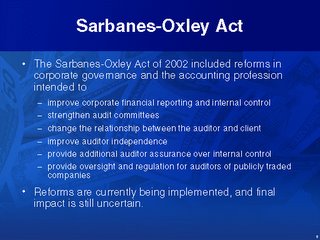
The Age of Compliance is rapidly coming into vogue. Inspired by the need to deal with terrorist organizations and an ever increasing rise in financial crimes, governments and private organizations are tightening down their procedures.
Traditionally, the business approach to controlling exposure has been segmented into different areas. In most organizations this would include the finance, legal, corporate security and IT departments.
But let's face it, compliance/security costs money and the entities that ensure this don't bring in money to the bottom line. They do prevent losses to the bottom line, but when they do their jobs, exposure is prevented and there is nothing tangible that can be measured.
DataMonitor (Norkom Technologies) recently did some interesting research, which might reflect a means to be more effective and reduce the cost of compliance.
"Traditionally financial service providers have viewed...Financial crime and compliance as separate disciplines, explained Paul Kerley, CEO of Norkom Technologies, continuing:
"But within an increasingly tight-margined industry there is a strong desire to pursue a single investment stream to both reduce criminal losses and drive down the cost of compliance. This is now achievable since single technology platforms are now emerging that can detect crime, investigate it and compile the management information required to fulfill the regulator's requirements."
Teamwork is a powerful tool and with the rapidly changing face of the business world this makes perfect sense. In fact, anyone involved in compliance knows the exposure increases daily and that the bad guys (terrorists and criminals) use the ever changing face of technology to further their sordid goals.
Organized criminals and terrorists are also combining "job disciplines" and many experts suspect that they recruit experts from the financial, IT and legal sectors. In the case of the Eastern European Groups, they also employ former security and intelligence experts.
Terrorists are doing the same thing.
Phil Williams, Professor of International Security Studies, University of Pittsburgh highlighted this in a paper a few years ago when he wrote:
"Many governments, businesses, and individuals around the world are just beginning to learn how to make best use of the latest information technologies. But organized criminal enterprises have already discovered these technologies as new opportunities for exploitation and illegal profits."
In his paper, Professor Williams also wrote:
"Criminal organizations and drug traffickers have increasingly hired financial specialists to conduct their money laundering transactions. This adds an extra layer of insulation while utilizing legal and financial experts knowledgeable about financial transactions and the availability of safe havens in offshore financial jurisdictions."
"Similarly, organized crime does not need to develop technical expertise about the Internet. It can hire those in the hacking community who do have the expertise, ensuring through a mixture of rewards and threats that they carry out their assigned tasks effectively and efficiently."
So far as the Terrorists, their use of technology and financial expertise is well documented.
Recently, the FBI and other law enforcement organizations have recognized the need for greater teamwork between experts from the law enforcement and business worlds.
Based on the signs of the times, consolidation of resources within companies not only will cut costs, but it will probably also make their efforts more effective. In fact, it makes perfect sense, at least to me.
For an article about this by InvestorsOffshore.com, click on the title of this post.

No comments:
Post a Comment